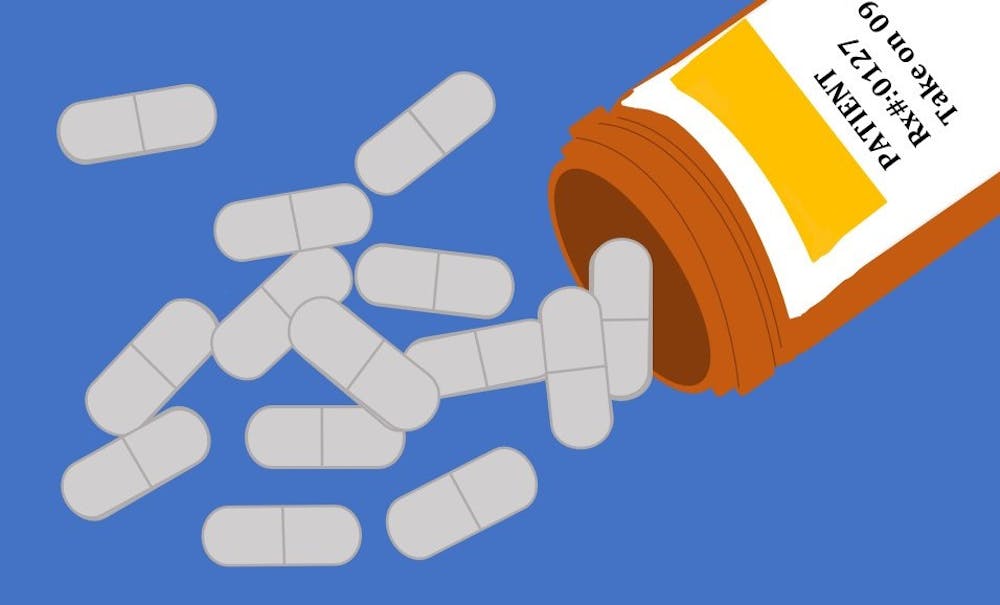Experts at Hopkins and the University of California, San Francisco (UCSF) recently launched the Opioid Industry Documents Archive. The archive consists of a digital repository of publicly disclosed documents from recent judgments, settlements and ongoing lawsuits regarding the opioid crisis. Within the archive, there are 3,300 documents — about 131,000 pages — contained in six collections.
This new archive will deliver free and unrestricted information for the public and experts to analyze to help policymakers prevent another epidemic.
The opioid epidemic has wreaked havoc on the lives of millions in the United States. According to the Centers for Disease Control and Prevention, from 1999 to 2019, nearly 500,000 people in the U.S. died from an overdose involving opioids. In addition to the negative health effects of opioids, the opioid epidemic cost the U.S. more than $2.5 trillion between 2015 and 2018 according to an analysis from the White House Council of Economic Advisers.
Assembling over 3,000 documents detailing the history of the opioid epidemic was no easy task. Experts from the Welch Medical Library, the Institute of the History of Medicine and the Sheridan Libraries' Digital Research and Curation Center were all involved in compiling scholarship about the epidemic. At Hopkins, the project was assisted by Dr. Caleb Alexander, a professor at the School of Public Health and founding director of its Center for Drug Safety and Effectiveness.
In an interview with The News-Letter, Alexander explained the origin of this project.
“Johns Hopkins and UCSF were natural partners for this kind of undertaking,” he said. “UCSF offers experience from the creation of the tobacco documents archive and Hopkins provides an enormous depth of expertise in many areas vital to this.”
Hopkins and UCSF leveraged the original framework UCSF used to develop the Truth Tobacco Industry Documents archive in 2002.
The tobacco archive now consists of millions of documents that have supported widespread scientific and investigative research to reduce smoking and related illnesses. The opioid archive is poised to have a similar impact on the state of the opioid epidemic.
The opioid archive consists of documents which were already publicly accessible, as well as some which previously required payments to view. Now, all these documents can be viewed in one database completely free.
“All too often documents that are produced through litigation are never publicly disclosed. We felt that it was of vital importance to the public health for these documents to be put in the public domain,” Alexander said. “I anticipate that journalists as well as policy makers, commissions and lawyers are likely to be frequent customers along with many interested members of the general public.”
Although the teams were able to build on the work of UCSF, the process of creating the database was lengthy.
“We spent many months developing this archive,” Alexander said. “However, when one framework is developed, it is easier to place new documents into the framework in the future.”
This existing framework can be applied to add new opioid documents to the digital archive as they become available. It can also be used to explore future public health issues that may require an archive.
“There are many, many more documents that have yet to be put in the public domain that we would be delighted for the archives to host,” Alexander said.
The negligence of large pharmaceutical companies is said to be the cause of the opioid epidemic. This archive provides evidence that pharmaceutical companies were acutely aware of the actions which cost hundreds of thousands of human lives.
To illustrate this fact, Alexander pointed to specific documents on the Opioid Industry Archive, such as an email exchange between a sales rep for Mallinckrodt Pharmaceuticals and a distributor for KeySource Medical. In the email, the distributor jokes about the widespread use of Oxycontin and likens its addictiveness to the tortilla chip Doritos.
Speaking of the general goals of this work and some future directions, Alexander expressed his hope that the lessons contained in the archives will prevent similar tragedies from happening again.
“There's a direct linkage between the information that's contained within the archives and the road map that we should be using going forward,” he said. “It is our hope that history never repeats itself.”





